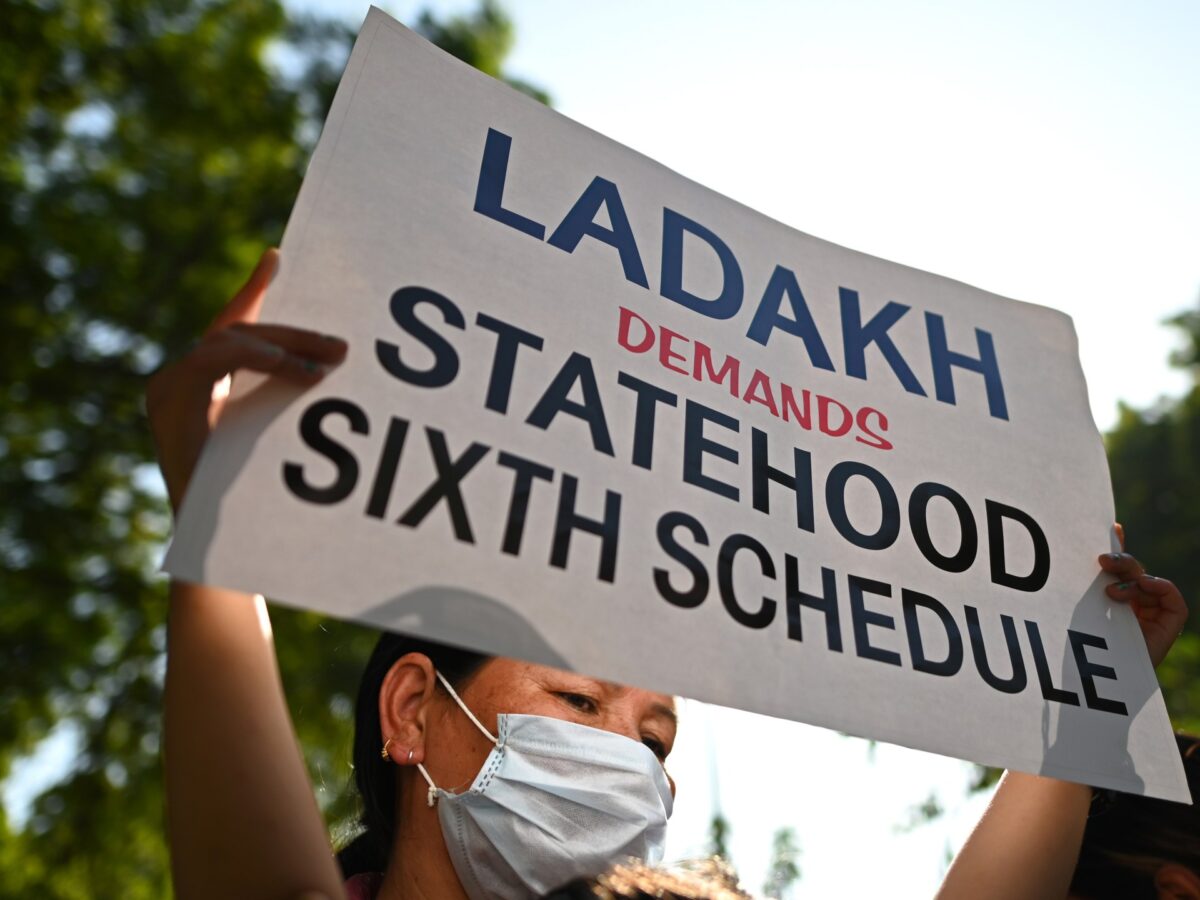Climate activist Sonam Wangchuk ended his 21-day-long fast-unto-death hunger strike at Martyr’s Memorial Park in Leh, Ladakh, on March 26. He started on March 6, two days after Home Minister Amit Shah refused to fulfill their demands on March 4. Wangchuk, however, told the media that it doesn’t mark the end of the protest as he will continue to demonstrate for the statehood of Ladakh.
Table of Contents

The Indian Scientist said on Tuesday that phase 1 of their protest has come to an end and the next phase is going to start on March 27 in which women are going to hold a fast followed by the youths, the monks, the senior citizens, and so on.
Indian Government indifferent towards Ladakh
During the protest, Wangchuk on his official YouTube channel expressed disappointment towards the mainstream media which remained inconceivably silent throughout their protest. He said that during the 21-day fast, several people joined him and about 350 people slept outdoors at -10 degrees Celsius temperature but the government of India has not yet uttered a word about it.

Yesterday, according to Wangchuk, was the most beautiful day as about 7000 people from different regions of the country belonging to different religions such as the Hindus, the Sikh farmers from Punjab, Muslims, Christians, etc. gathered in Ladakh supporting the protest. The famous South Indian actor Prakash Raj celebrated his birthday by visiting Ladakh to meet Sonam Wanchuk and expressing his solidarity towards their protest, the environmentalist mentioned.
Wangchuk said that he had been surviving on salt and water and remarked that 21 days is the longest fast hold by Gandhi ji.
Taking it to X (formerly Twitter), Wangchuk said on a post that they (the people of Ladakh) don’t want Prime Minister Narendra Modi and Home Minister Amit Shah to address their issues as mere politicians but rather as good statesmen for which they have to “show some character”. In a video, he pointed out frozen glasses of water to emphasize the hostile situation in which they are demonstrating.
“We need statesmen of integrity, farsightedness and wisdom in this country and not just shortsighted characterless politicians. And I very much hope that PM Modi and Mr. Shah will soon prove that they are statesmen,” Mr. Wangchuk said. He reminded PM Modi and Amit Shah to fulfill the promises they had been making to the people of Ladakh since the past two Lok Sabha elections.
Upon not receiving the Centre’s response over the issue Wangchuk reminded the people of their ballot power ahead of Lok Sabha polls on May 20 in Ladakh which has one Lok Sabha seat. He urged the people to cast their valuable votes “very carefully” and this time for the welfare of the country. He added that as the citizens of a democratic country, they are in the position to compel the government to serve the people of the country or otherwise dethrone anyone who won’t work properly.
Who is Sonam Wangchuk?

Sonam Wangchuk, a mechanical engineer, climate activist, and education reformist in Ladakh, is the person by whom Amir Khan’s character of Phunsukh Wangdu in the 2009 film 3 Idiots, a film by Rajkumar Hirani, was inspired. He is the winner of multiple awards including the Ramon Magsaysay Award in 2018. He is the founding director of the Students’ Educational and Cultural Movement of Ladakh (SECMOL) which received the International Terra Award for the best building in July 2016. He is the one who appealed to the Indians to boycott Chinese products over the India-China border dispute in 2020. He has made significant contributions to the well-being of the people of Ladakh.
What are the demands of Sonam Wanchuk?
Previously on 26th January, 2023, Sonam Wangchuk attempted to launch a hunger strike at the Khardungla Pass highlighting the adversities of climate change on the fragile ecosystem of Ladakh and demanding protection of the union territory under the Sixth Schedule of the Indian Constitution. After he was prevented from going at the Khardungla pass and put under house arrest, he relaunched his fast on March 6, 2024.

His demands this time included the statehood of Ladakh, protection of Ladakh under the Sixth Schedule of Indian Constitution (which ensures protection of tribal interests in Assam, Meghalaya, Tripura and Mizoram by granting the tribal communities considerable autonomy), safeguarding the union territory from industries and mining lobbies causing environmental challenges due to which Himalayan glaciers are melting away day by day, allotment of separate parliamentary seats for Ladakh and Kargil and establishing separate Public Service Commission for Ladakh.

After the partition of Jammu and Kashmir and the eradication of Article 370 from the Indian Constitution, the special status provided by it is also has been snatched away from Ladakh which now is suffering from a political vacuum. The leaders of Buddhist-dominated Leh and Muslim-dominated Kargil also united together under the Apex body of Leh and Kargil Democratic Alliance to press for their demands through massive protests earlier this year.



